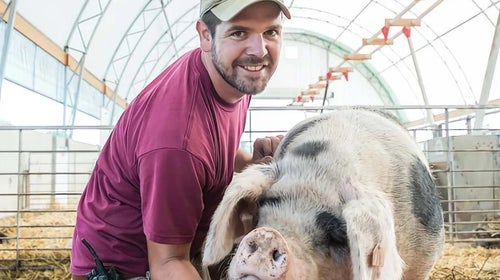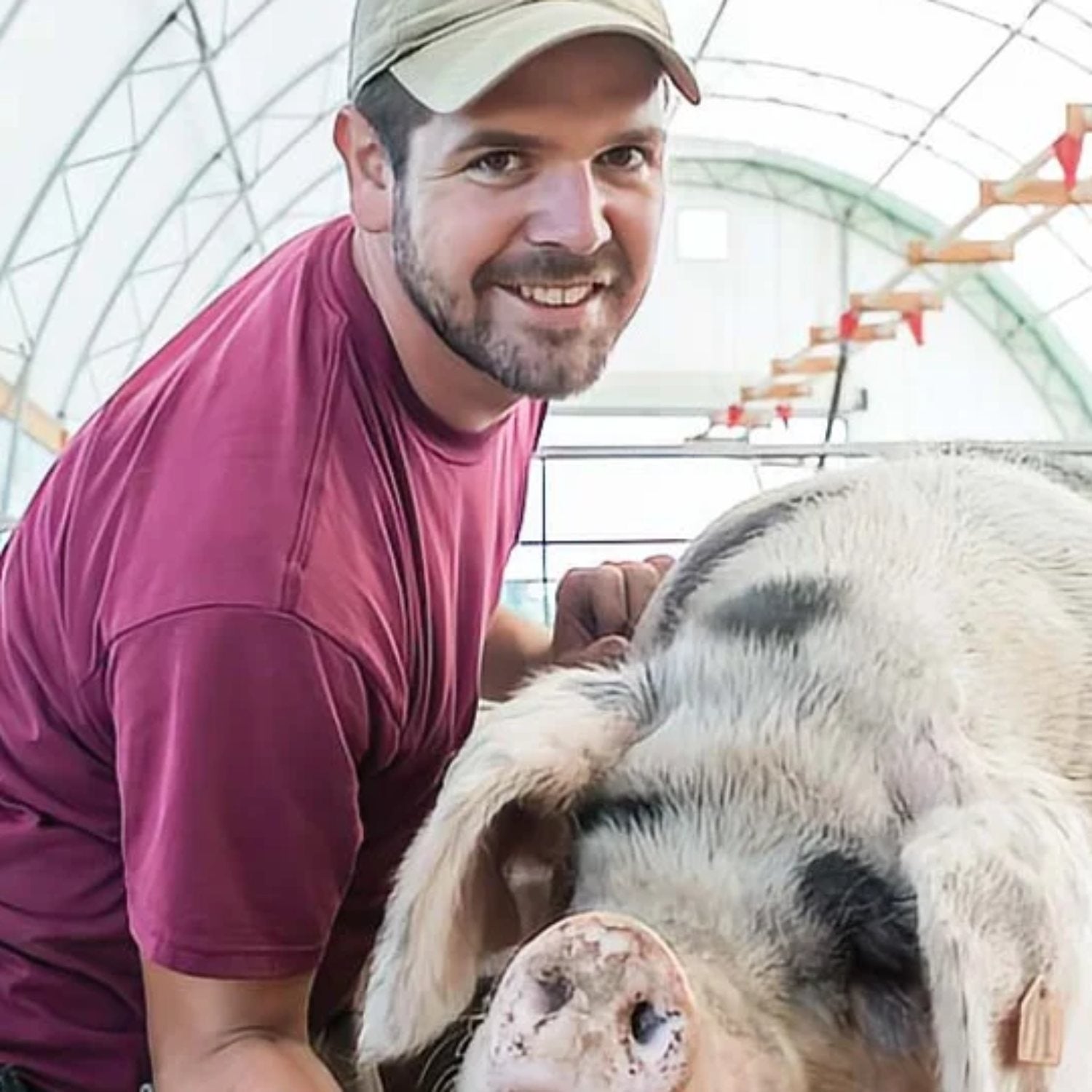In Emmaus, Pennsylvania, you will find that some of the most important roots of American cycling are certified organic. This is where the enigmatic J. I. Rodale established a family farm in the 1940s, motivated by global politics, his familyÔÇÖs business interests and concerns about his own personal health. Rodale became interested in exploring the idea of growing his own food in a way that would help him proactively address some of the health issues that plagued many of the male members of his family. He set about understanding what went into the practice of farming and agriculture and, more specifically, the way our food was grown. His curiosity and commitment would lead to his founding the United StatesÔÇÖ organic movement.
After purchasing and reinvigorating a dilapidated 63-acre farm just outside of Emmaus, Rodale began experimenting in small plots on how different approaches to planting and fertilizing affected the yield and quality of the food that grew. What has become more conventional knowledge these days, and what Rodale found, is that growing food organically without the introduction of chemicals saw similar yields and a wealth of other benefits to the soil, surrounding ecological systems, water tables and the consumer.
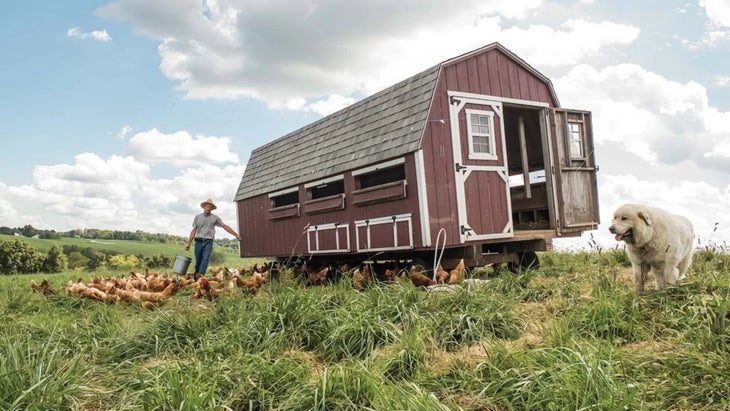
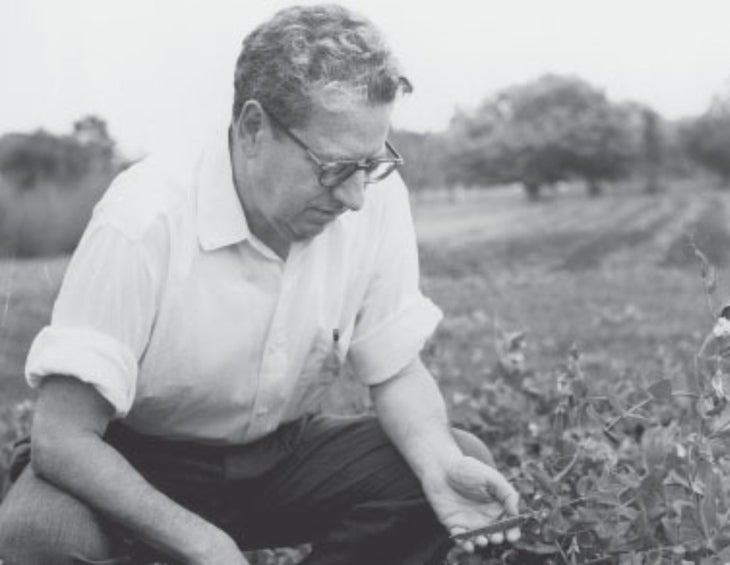
RodaleÔÇÖs mission soon turned from simply organic farming practices to a broader healthy lifestyle when in 1942 he launched┬áOrganic Farming and Gardening┬ámagazine, which would later become┬áOrganic Gardening. It began a publishing business that would go on to include┬áPrevention, RunnerÔÇÖs World, MenÔÇÖs Health┬áand┬áBicycling┬ámagazines, all with a healthy lifestyle bent.
Robert Rodale would succeed his father in running the familyÔÇÖs various companies; and in addition to his business acumen he was an American Olympian and part of the 1968 U.S. team in skeet shooting. His interest in the bicycle was born of his experience at the Olympics in Mexico City and upon his return to Pennsylvania that interest germinated into the construction of an Olympic-caliber velodrome in nearby Trexlertown that he promptly donated to the local parks program.
These days itÔÇÖs known as the Valley Preferred Cycling Center, but it will always be T-Town to those who know it. The velodrome has developed and launched the cycling careers of Olympians and professional riders alike and is a giant part of the cycling culture that persists here. Hosting UCI track events, developmental leagues and a general atmosphere of healthy competition and good clean fun from the track to the beer garden. Eddy Merckx and Patrick Sercu rode the T-Town velodrome in 1978 as guests of the Rodales. They stayed on the familyÔÇÖs property in Emmaus and were chauffeured around by then 16-year-old Maria Rodale in her motherÔÇÖs powder-blue Cutlass with white interior.
The Rodale Institute has moved from the family farmhouse to a nearly 350-acre farm in nearby Kutztown, Pennsylvania, where the farm and gravel roads offer some spectacular riding. The Rodales have gone on to become one of the single largest advocates and drivers of organic farming in the United States. The entire premise of their on-site operation is to run side-by-side tests growing organic produce next to produce grown ÔÇťconventionallyÔÇŁ to let the results make the case for the benefits, as well as the urgency and necessity for an organic approach to agriculture on a large scale.
For the average American farmer, adopting organic farming has a positive impact on the produce they grow, the soil on their land where they grow it and, perhaps most compelling, their own economic bottom line. Organic certification allows farmers to charge a premium for the food that they bring to market. In todayÔÇÖs economy it is likely the only way that small farms survive into the next generation.
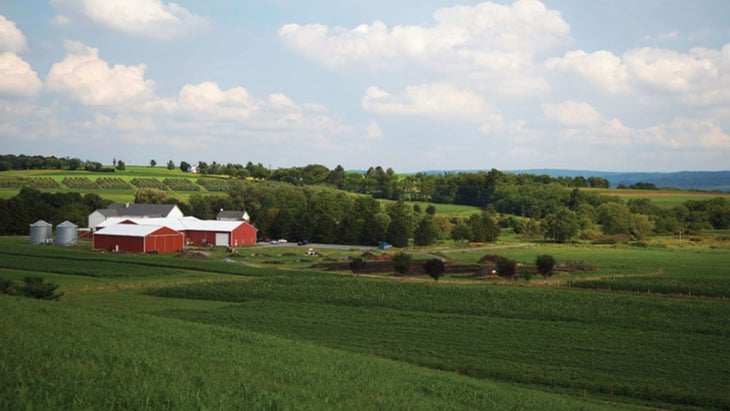
While many of us are aware of what weÔÇÖre consuming and the detriments that can be caused by putting produce grown with pesticides in our body, thereÔÇÖs a fundamental environmental stewardship at stake; and the Rodale Institute has moved from a focus on simply organic to exploring the benefits of regenerative organic agriculture. The approach is a whole-system farming method, focusing on the cultivation and maintenance of healthy soils, a series of humane considerations for livestock (from the ability to graze freely to how they are fed and sheltered), and the safety, treatment and compensation for the people who work on the farm.
From an urgency point of view and on a global scale, topsoil degradation is an issue on par and tied up with climate change. Most scientists agree that on our current path all the worldÔÇÖs fertile topsoil will be degraded and barren within 60 years. Erosion and deforestation are certainly culprits, but intensive, chemically modified farming on an industrial scale is the major reason for the planetÔÇÖs soil degradation.
The folks at the Rodale Institute have gone beyond making the case for these approaches on their farms and are aggressively working with other farmers and state legislators to help them understand and adopt regenerative farming practices. Rodale has more than 70 years of organic farming experience and its mission is to impart the lessons learned to farmers all over the world. Right now, more than half of organic produce consumed in the United States is imported, whether itÔÇÖs corn from Turkey or the U.K., or soybeans from India.
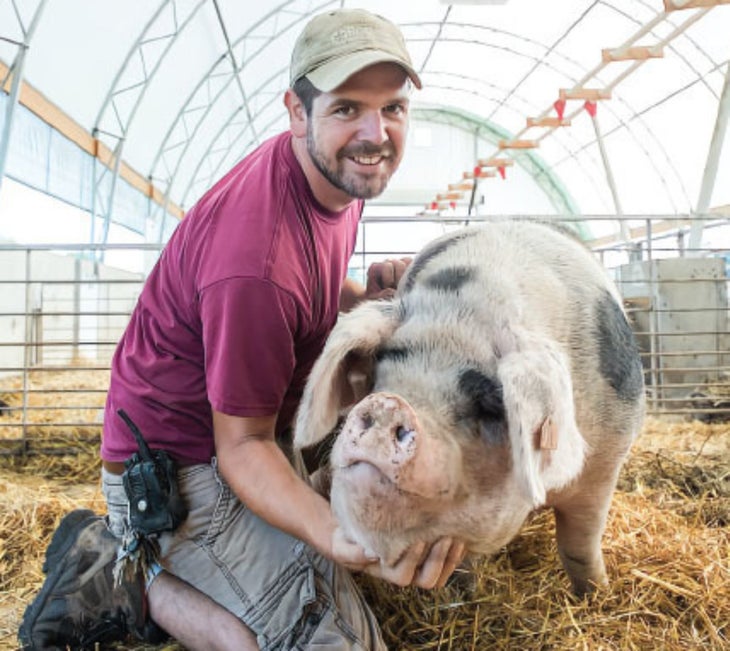
One of the biggest hurdles for farmers converting from conventional to organic farming is the three-year transitional period between using chemical inputs on your farm and being able to be certified organic. Navigating that period and the sense of uncertainty can be intimidating and makes many farmers hesitant to take the steps necessary to move toward organic. In 2020 the state of Pennsylvania became the first in the nation to pass a farm bill at the state level. There were major focuses of the legislation at increasing organic agriculture in Pennsylvania and Rodale was a major partner with the state, creating a consulting service at the Rodale Institute to assist farmers in the transition. Funding in the bill made it free to Pennsylvania farmers, and Rodale promised Governor Tom Wolfe that they could get 10,000 acres into transition within the first year.
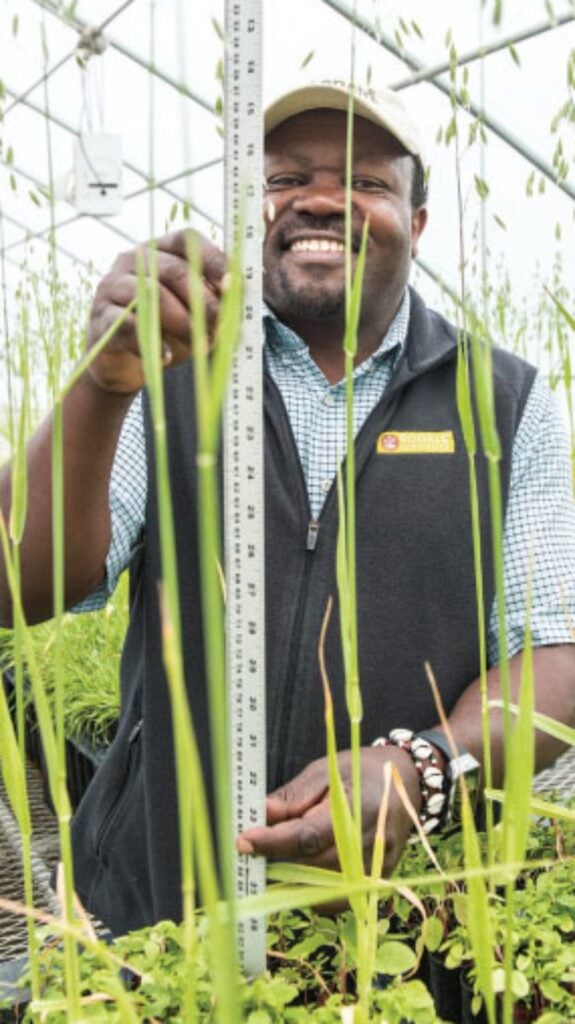
In that inaugural year Rodale was instead able to get 40,000 acres of Pennsylvania farmland into organic transition. ItÔÇÖs able to help committed farmers navigate everything from changing out equipment, record keeping and navigating weed control to gaining access to new markets and benchmarking soil samplesÔÇöall of which makes the process less overwhelming. Every farmer who undergoes transition will see the value of their land and produce increase, with their soils, workers and families set up for healthier futures.
The journey toward a sustainable food model in the United States still has miles to go, but its first and most important pedal strokes were turned over in PennsylvaniaÔÇÖs Lehigh Valley, in one of AmericaÔÇÖs cycling culture epicenters.
